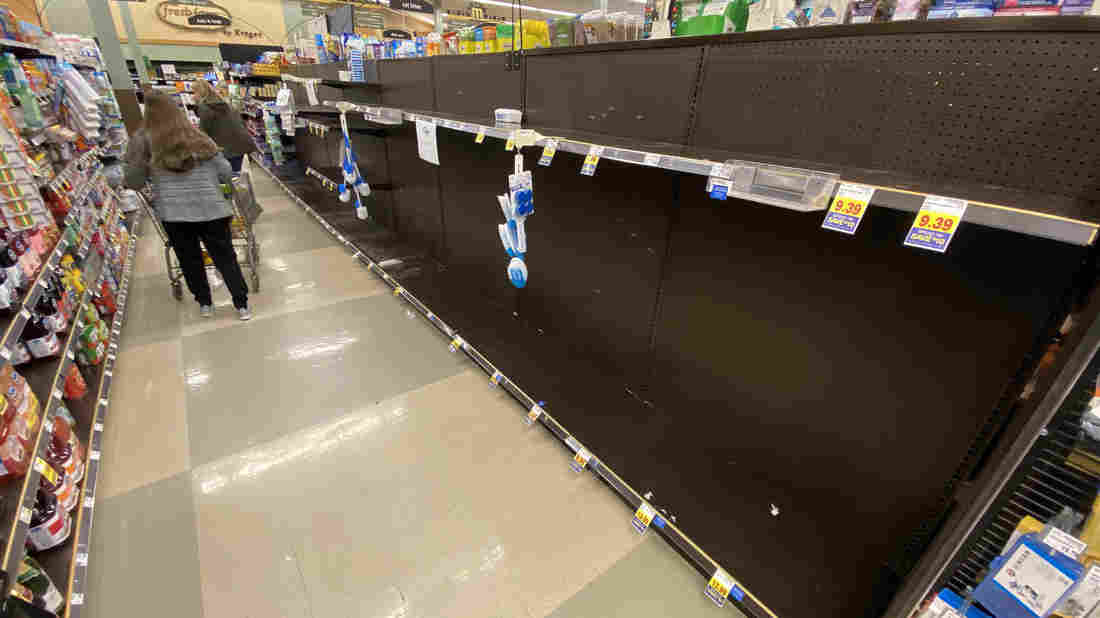[This article originally appeared on the American Institute for Economic Research website on September 12, 2017.]
Critics of the free economy often complain that the market fails to “behave” as economic theory predicts. Hence the voluminous literature on “market failure” (which sparked a substantial public choice literature on “government failure” and the need for comparative institutional analysis).
But critics also fault the free economy for behaving exactly as the theory predicts. Hence the outcry against “price gouging” during natural and manmade disasters.
The market is damned when it works and damned when it appears not to.
Price gouging is the common pejorative for sharp price increases when, as a disaster looms, the demand for consumer goods — such as gasoline, batteries, and bottled water — rises abruptly. The phenomenon is so widely despised that many states and localities have outlawed or limited such price spikes.
Those spikes are predicted by economic theory. The law of supply and demand anticipates that an increase in demand relative to supply will (other things being equal) cause the price to rise. During Hurricane Harvey, $20 a gallon for gas and $99 a case for water were reported.
What upsets people is that the law kicks in at full force when the demand for gasoline, batteries, and bottled water is especially acute. An impending disaster prompts consumers to stockpile goods for fear that they will not be able to buy them later. Because conditions are abnormal, competition can’t be counted on immediately to limit price increases.
Texas Attorney General Ken Paxton expressed what many people feel: “Unfortunately, in the wake of the damage from storms and flooding, we … see bad actors taking advantage of victims and their circumstances.” As Hurricane Irma was bearing down on Florida, state Attorney General Pam Bondi declared she had “zero tolerance. If you are a bad business going after our citizens, we’re going to go after you with everything we’ve got.” To owners of offending convenience stores, she promised to “pull your franchise.”
Appearances of exploitation can deceive, however. Let’s begin with the obvious: so-called price gouging arises during impending emergencies in which, by definition, no good alternatives exist. People who condemn gouging imply the choice is between plentiful supplies at low prices and plentiful supplies at high prices. But the first alternative is not available. The real choice is between no goods at a low price and some goods at a high price. Government threats do nothing to increase the supply — but they may well keep the supply from increasing, making a bad situation even worse.
Bondi told CNN that charging $30 for water is wrong because “there’s plenty of water throughout this country.” But water in other states could do Texans and Floridians no good unless someone chose to transport it to the hurricane zones. Policy makers need to ask themselves whether people in other states are more or less likely to do so if they risk prosecution for charging too much. The answer is obvious. Why would anyone take extraordinary risks if they couldn’t charge much more than they could charge at home? We may wish that people would risk their lives for strangers, but how many of those who condemn price gouging undertake that risk themselves?
If the objective is to get badly needed supplies to people in need, it would be better to take human nature as we find it and accept that the profit motive is the most powerful inducement we know for getting goods delivered to those who need it. How comforting is the knowledge that, although people will go without those goods, at least no price gouging occurred?
When critics rail against gouging, they often appeal to the virtue of charity and call on everyone to sacrifice for those who face extraordinary hardship because of emergencies. However, those critics fail to understand that the law of supply and demand encourages the very sacrifice they call for. When prices spike, consumers naturally cut back on their purchases, forgoing what they regard as the most trivial uses of goods. By doing so, they leave more for others — which is what the gouging critics say they want. If prices remained at the old, lower level, consumers at the front of the line would buy more than they would have at higher prices, leaving less for those at the back of the line. We have no reason to think the poor have better access to goods when the government imposes price ceilings.
Note also that if profit-seeking entrepreneurs in other states moved goods to afflicted areas, even consumers in unaffected areas would be encouraged to cut back. Thus the sacrifice would be spread throughout the country.
Limited supplies might go further by restricting purchases through an honor system for consumers or through arbitrary limits on purchases, but neither of those alternatives would bring new supplies to the marketplace.
The question remains: do we want to feel good, or do we want people to have the goods they need?
TGIF — The Goal Is Freedom — appears occasionally on Fridays.
































